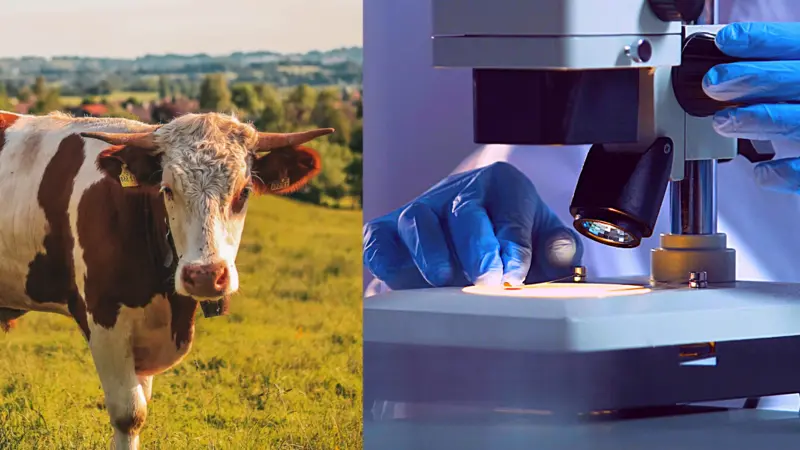

Planet and People Connection

Planet and People Connection
Are Genetic Experiments Outpacing Ethics?
Scientists are raising the alarm.
We've all seen GMO products in grocery stores. Genetically modified organisms—vegetables, fruits, grains—are everywhere. But what about meat? Around the world, at least a dozen gene-edited livestock projects are aiming to reach consumer markets.
The industry purports to know how gene editing works "all the time, under all conditions," says Odd-Gunnar Wikmark, a researcher at the Norway-based foundation GenOk, "We, of course, do not."
Rapid strides have been made in genome-mapping, yet scientists have only just begun to understand what the tens of thousands of individual genes do or how they interact with each other.
Crispr-Cas9 ("Crispr") is a tool that allows scientists to add, delete, and rearrange DNA faster than ever. Proponents say they are engineering mutations just like traditional cross-breeding does—but faster. They aim to improve agricultural productivity, produce hardier beasts, and reduce practices that are costly or considered inhumane. Cattle could be engineered without horns, for instance, eliminating the need to dehorn them.
Crispr technologies for crop resistance to pests, promoted by chemical companies, is a cause of concern to many, who call into question the integrity of GMO food. The explosion in organic farming is a response to this.
Meanwhile, critics say that editing animal DNA could introduce unwanted mutations that pose a threat to human health when consumed. Some argue there is insufficient oversight of the meat, eggs, and dairy from genetically modified livestock and farm animals that are poised to end up on supermarket shelves.
"Even the genes that we think we know very well, there's a lot to learn," acknowledges Johns Hopkins geneticist Se-Jin Lee.
To date, genetically altered pigs in China have been born with extra vertebrae, rabbits with enlarged tongues, and calves have died inexplicably. The journal Nature Biotechnology published an article suggesting that Crispr might cause greater damage than previously understood. When DNA is cut, "a lot of odd things can happen," according to study leader Allan Bradley.
Consumers are become more educated about the health effects of GMO and herbicidal treatments and are voting with their dollars. The WSJ reported sales of products made without GMOs have increased from $349 million in 2010 to $25.5 billion in 2017.
Lisa Moses, an animal bioethicist at Harvard Medical School's Center for Bioethics, says: "Humans have a very long history of messing around in nature with all kinds of unintended consequences. It's really hubris of us to assume that we know what we're doing and that we can predict what kinds of bad things can happen."
REFERENCES
Rana, P., & Craymer, L. (2018, December 14). Big tongues and extra vertebrae: The unintended consequences of animal gene editing. The Wall Street Journal. https://www.wsj.com/articles/deformities-alarm-scientists-racing-to-rewrite-animal-dna-11544808779


 By
By







